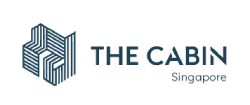Dual Diagnosis Treatment at The Cabin Singapore
Dual diagnosis, also otherwise known as a co-occurring disorder, refers to someone who has more than one medical disorder. For those suffering from addiction, dual diagnosis generally means they are either addicted to more than one substance or process, or suffer from addiction and one or more psychological disorders.
Many people struggling with disorders such as depression and anxiety will use alcohol or prescription drugs to self-medicate. Although it can initially appear to help alleviate stress, self-medication can to lead to substance abuse and addiction, which actually makes the symptoms of depression and anxiety worse. This creates a vicious cycle of dependence. More than half of people with addictions also suffer from some form of psychological disorder, including anxiety, depression, eating disorders, and bi-polar disorder.
At The Cabin Singapore we recognise the difficulty that those suffering from co-occurring disorders face and offer treatment that not only combats the addiction but simultaneously addresses the underlying psychological disorders, such as depression or anxiety, so that clients can achieve and maintain their sobriety. Call us for a confidential initial assessment so we can help you determine the best course of action for your recovery.
Why The Cabin Singapore is Your Best Choice for Dual Diagnosis Treatment
Treatment for individuals with dual diagnosis is more difficult than for those battling only addiction. Treatment can be complicated as many of the symptoms of mental illness and addiction mimic and feed off each other, making them worse. Failure to identify and treat co-occurring disorders is a leading cause of relapse.
At The Cabin Singapore we know that a deep understanding of dual diagnosis is vital to successful recovery and relapse prevention. Our team of addiction counsellors, psychiatrists and psychologists are specialists in this field. In combination with our highly effective Recovery Zones addiction treatment programme clients may also need to attend additional individual therapy to fully address the complexity of their addiction as it interacts with another disorder.
This personalised approach combined with the dedication and compassion of our experienced clinical team, ensures clients the best possible chances of success. By attending outpatient treatment at our conveniently located office within the Novena Medical Centre, clients are able to return home each night and can generally maintain their career and home responsibilities.
As dual diagnosis cases can offer unique challenges, our treatment team may recommend residential addiction treatment to begin your recovery at our world -class inpatient rehab located in beautiful Northern Thailand.
The Cabin Rehab in Chiang Mai Inpatient Rehab

Renowned for providing effective dual diagnosis treatment, The Cabin Rehab in Chiang Mai provides resort-like accommodation amidst tropical gardens—a perfect setting for focusing on your recovery. Just a short flight from Singapore, our inpatient facility provides for a safe haven for clients with more severe addictions, where they can focus on healing 24 hours a day, seven days a week. Western trained addiction therapists will provide an enhanced version of the Recovery Zones treatment programme that includes individual counselling, mindfulness training and other activities and excursions all focused on your healing.
Let our team of professionals demystify the topic
call us directly on
+65 3158 7621
WE ARE READY TO HELP

How High-Functioning Anxiety is Taking Hold in Singapore
High-functioning anxiety is a type of anxiety that is characterized by a person who appears to function well on the surface, but who experiences significant anxiety and stress underneath. This is a particular problem for businessmen and women from corporate backgrounds based in Hong Kong and Singapore currently facing uncertainty in their lives.

Why Problem Gambling is on the Rise Among Elderly Singaporeans
Though Singapore is home to only two casinos, it comes in second worldwide for gambling. And among the many gamblers in Singapore, more than half...

What’s Behind Singapore’s Increasing Demand for Alcohol Addiction Treatment?
Singapore’s strict laws around alcohol consumption are no secret. But despite these attempts to reign in drinking, the number of people seeking...

